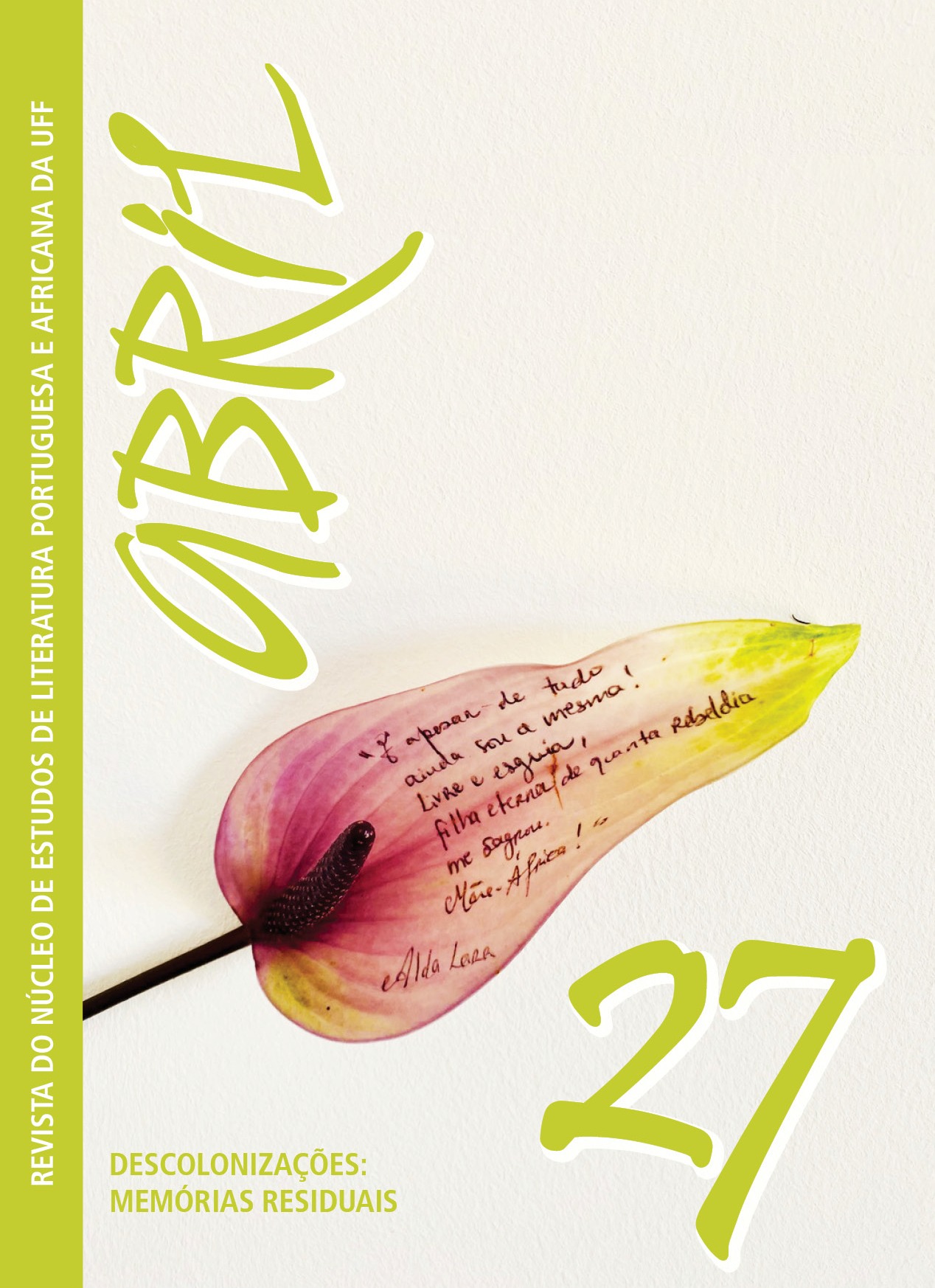“These lies, dear doctor, will become indisputable truths”: underground memories, violence and legitimacy in O anjo branco, by José Rodrigues dos Santos
DOI:
https://doi.org/10.22409/abriluff.v13i27.50213Keywords:
O anjo branco, Underground memories, Salazarism, Monopoly of violenceAbstract
The objective of this article is to discuss the novel O anjo branco, by Jose Rodrigues dos Santos, based on the idea of the literary field as an archive of memories that confront each other in dispute for a narrative authority over a time and the legitimacy of its specific events. The author places himself as a representative of his community of memory and dramatize, on the stage of his narrative, an ideological argument interested much more in the representation of what he calls the “spirit of the time” of Salazarism than in the factual reconstruction of the occurrences. This notion of the intentions that underpin the regime’s actions is closely related to the basis of contractual theories that justify the monopoly and the use of violence by the public power when they aim at the common good. Thus, the article discusses the relationship between history, memory, politics and literature from theorists such as Thomas Hobbes, Hayden White, Micheal Pollack, Margarida Calafate Ribeiro and Diana Klinger.
Downloads
References
HOBBES, Thomas. Leviatã. tradução Joao Paulo Monteiro e Maria Beatriz Nizza da Silva. São Paulo: Martins Fontes, 2003.
KLINGER, Diana Irene. Escritas de si, escritas do outro: autoficção e etnografia na narrativa latino-americana contemporânea. 2006. Tese (Doutorado em Letras) – Universidade do Estado do Rio de Janeiro, Rio de Janeiro, 2006. Disponível em: https://bdtd.ibict.br/vufind/Record/UERJ_f5049ab83c0205d1fe06665f7fbca5a1 Acesso em 25mai. 2021.
POLLACK, Michael. Memoria, Esquecimento, Silencio. Estudos históricos, v. 2, n. 3, pp. 3-15, 1989.
RIBEIRO, Margarida Calafate. Os netos que Salazar nao teve: guerra colonial e memoria de segunda geracao. Abril, n. 5, v.11, pp. 25-36, 2013.
RODRIGUES DOS SANTOS, Jose. O anjo branco. Lisboa: Gradiva, 2010.
WHITE, Hayden. The Value of Narrativityin the Representation of Reality. Critical Inquiry, v. 7, n. 1, pp. 5-27, 1980.
Downloads
Published
How to Cite
Issue
Section
License
Copyright (c) 2021 ABRIL – NEPA / UFF

This work is licensed under a Creative Commons Attribution-NonCommercial 4.0 International License.
I authorize the journal Abril - NEPA/UFF to publish the paper of my authorship/responsibility that I now submit, in case it is accepted for online publication.
Moreover, I declare that this contribution is original, that it was not submitted to any other editor for publication, and I sign the present declaration attesting the truth of all its contents.
The copyright of the works published at the virtual space of the journal Abril - NEPA/UFF are automatically entitled to the journal. Their total or partial reproduction is conditioned to the authors' citations and publication data.

Abril is licensed under a Creative Commons - Attribution-NonCommercial 4.0 International (CC BY-NC 4.0).









